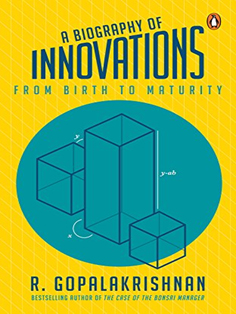Sales Lesson: Do you have a compelling pitch to convince your prospect before she can step off the elevator? What’s the purpose of your offering in one word?
2.Soul: If you can inspire “Wow”, “Neat”, “Holy smokes” from your Customers, then you are there. Or in Tom Peters’ high-octane language, do you grab, startle, surprise with an amazing guarantee, stupendous service or an extraordinary product?
Sales Lesson: Does your value proposition have a soul? Can it inspire a conversion?
3.Passion: Exhilarating. Exhausting never the less. That describes the life of an entrepreneur. What keeps you going is often just your passion
Sales Lesson: Is selling your Ikigai (or purpose of your existence)? If you are passionate about sales, it shows in your numbers. Sales too is a demanding profession that has no space for those who are low on enthusiasm
4.Details: “While the overall scheme must be an attention-getter” Tom Peters reminds us “only superb execution will win the day” Sales Lesson: If a potential pipeline shouldn’t end up as a pipedream, attention to detail and execution are key
5.Culture: A Customer obsessed cultured powered by professionalism is a big differentiator. This has to be pervasive and organisation wide regardless of how big or small the company is
Sales Lesson: As found in Mercuri’s recent Sales Excellence Survey, organisations that excel at sales, have a distinctive sales culture where “everyone is in sales”
6.Community: Participating in community affairs, with time more than dollars, is good business from Day one
Sales Lesson:The question to ask is: Does your sales strategy have a higher purpose beyond quotas? Do you make relationships out of business or is it the other way around?
7.Meticulous books: Good accounting brings credibility to numbers and earns the respect of stakeholders. It also promotes cost consciousness and revenue sensitivity across all activities
Sales Lesson: Cheerful submission to the grunt work of filling in call reports, CRM data sheets and activity logs is often fundamental to sales excellence
8.A pal: “Whether a business partner or spouse, you desperately need someone to offer counsel-someone you trust and who supports you but is not a flatterer” suggests Tom Peters
Sales Lesson: If you are a sales leader, are you a coach to your team? Do you manage by fear or by support? Companies topping sales charts are seen to invest generous amounts of time in sales force training, coaching and reviews
9.Perseverance: Swimming isn’t learnt from a book. Nor is entrepreneurial success. It is all about trying, failing, learning and persevering till you eventually succeed. Learning, Tom Peters says, is mostly done the hard way
Sales Lesson: Sales is not for the faint hearted. Winners in sales keep keeping on
10.Good luck: “Believe me, it helps!” declares Tom Peters. Was he smiling when he wrote that?
Sales Lesson: Veteran salespersons will tell you that luck writes a blank cheque for those work hard on their sales efforts
You can read Tom Peters’ recipe for startup success here













